迭代器
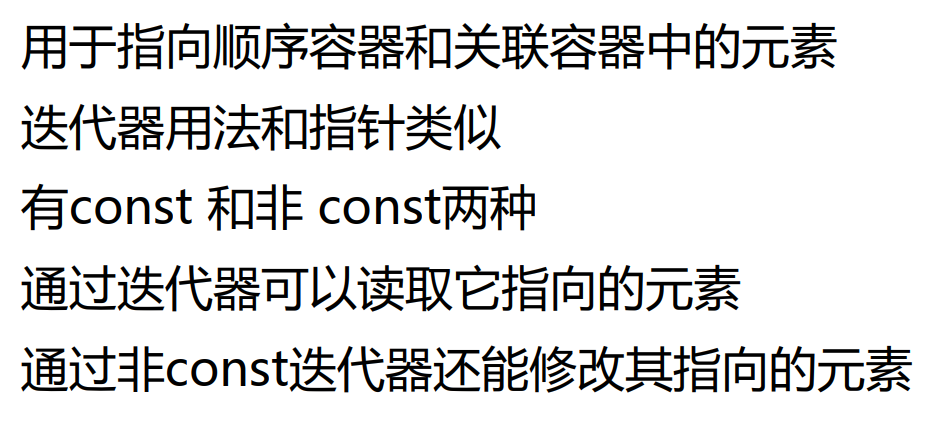
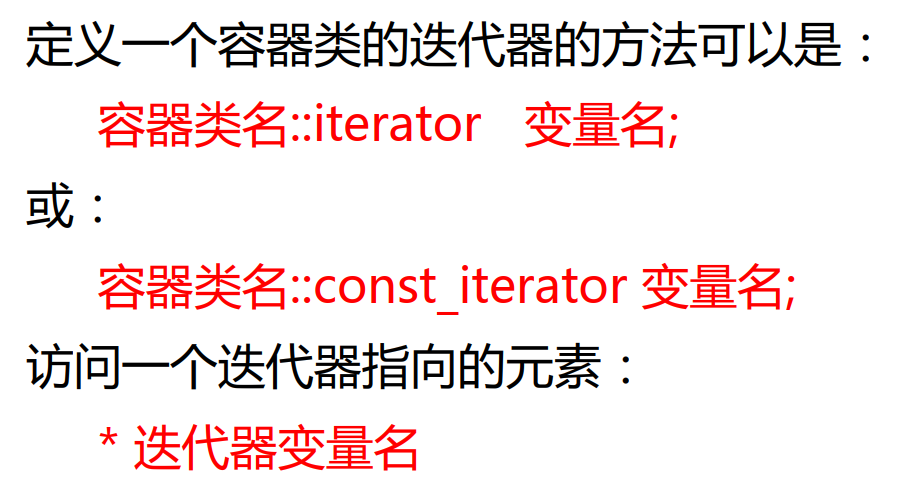

#include <vector>#include <iostream>using namespace std;void main() { vector<int> v; v.push_back(1); v.push_back(2); v.push_back(3); v.push_back(4); vector<int>::const_iterator i; // 常量迭代器 for(i = v.begin(); i != v.end(); ++i) cout << *i << ","; cout << endl; vector<int>::reverse_iterator r; // 反向迭代器 for(r = v.rbegin(); r != vrend(); ++r) // ++r 实际上是往前走 cout << *r << ","; cout << endl; vector<int>::iterator j; // 非常量迭代器 for(j = v.begin(); j != v.end(); ++j) *j = 100; for(i = v.begin(); i != v.end(); ++i) cout << *i << ","; cout << endl;/* 输出: 1,2,3,4, 4,3,2,1, 100,100,100,100, */ }
双向迭代器

随机访问迭代器
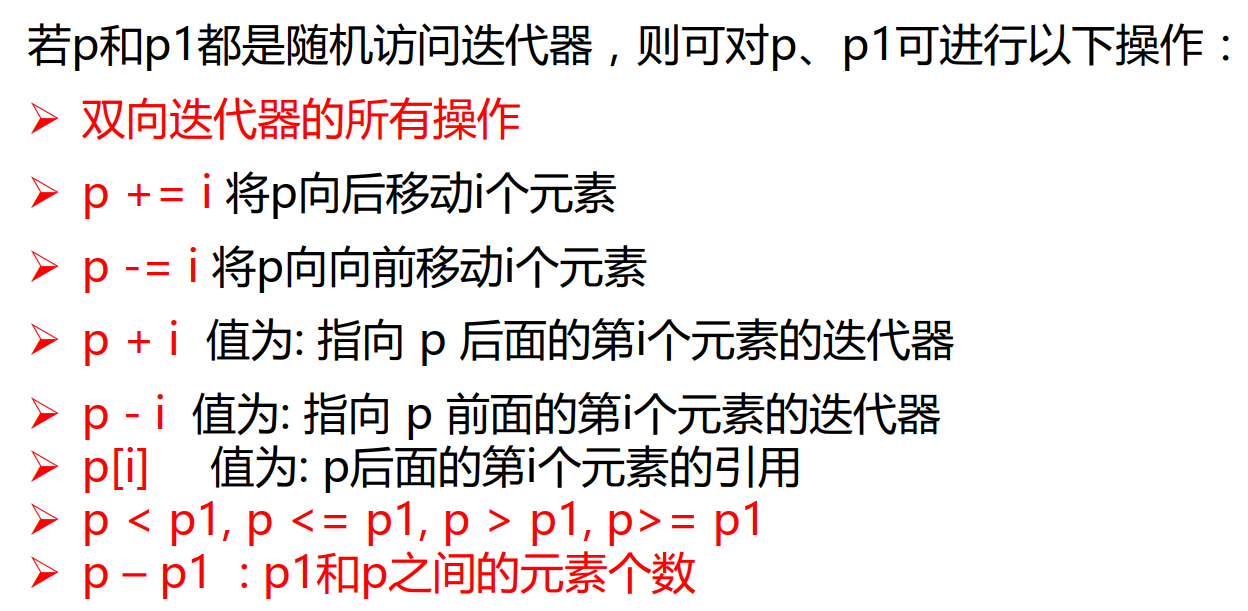
不同容器对应迭代器种类

vector的迭代器是随机访问迭代器

算法简介
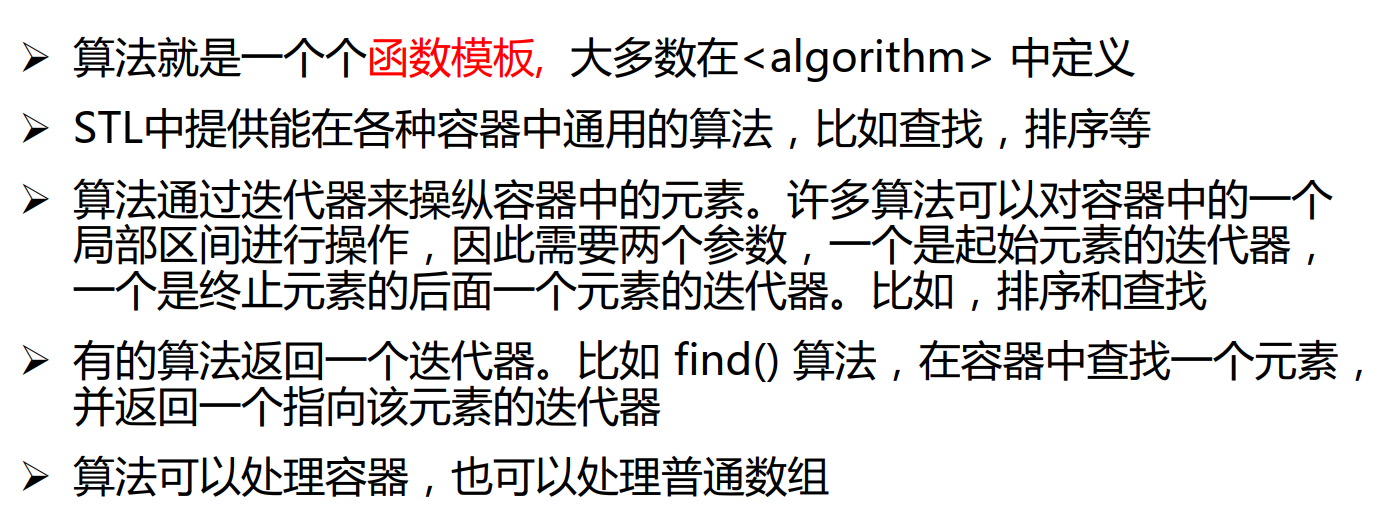
find()模板
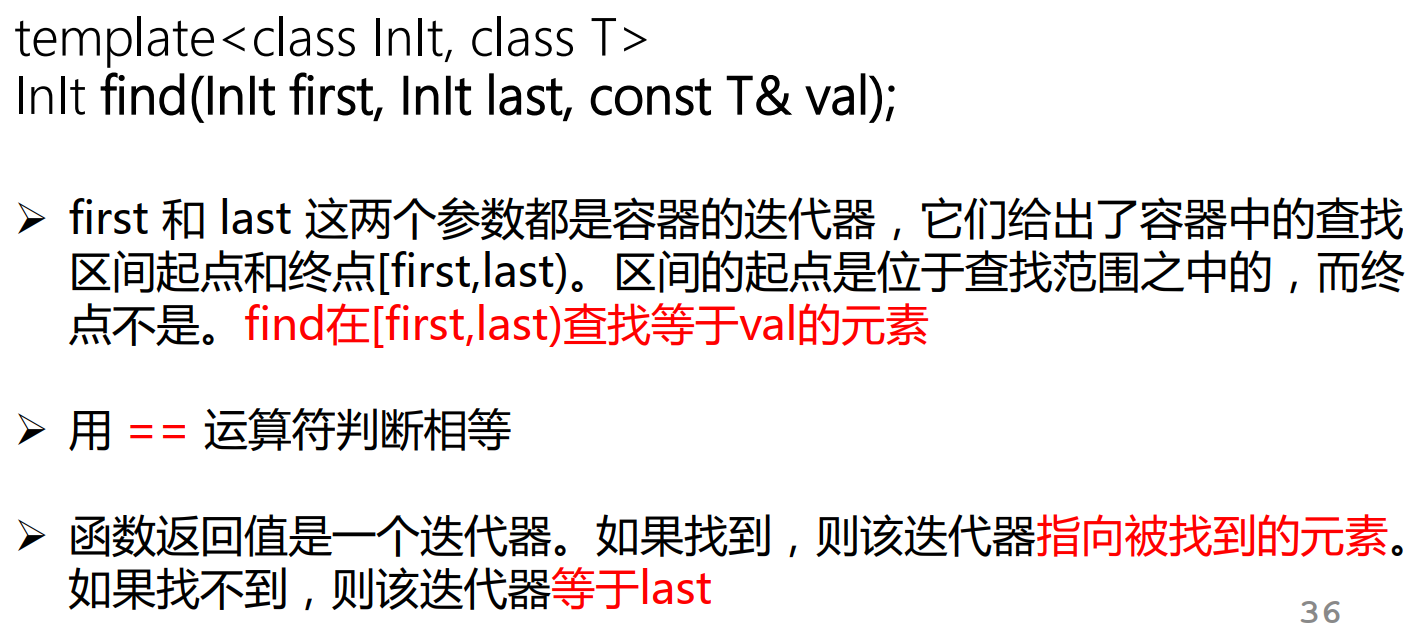
#include <vector>#include <algorithm>#include <iostream>using namespace std;void main() { int array[10] = {10, 20, 30, 40}; vector<int> v; v.push_back(1); v.push_back(2); v.push_back(3); v.push_back(4); vecotr<int>::iterator p; p = find(v.begin(), v.end(), 3); if(p != v.end()) cout << *p << endl; // 输出3 p = find(v.begin(), v.end(), 9); if(p == v.end()) cout << "not found" << endl; // 输出 not found p = find(v.begin()+1, v.end()-2, 1); //整个容器: [1,2,3,4], 查找区间: [2,3) if(p != v.end()) cout << *p << endl; // 输出3 int *pp = find(array, array+4, 20); cout << *pp << endl; // 输出20}
STL中“大”“小”概念
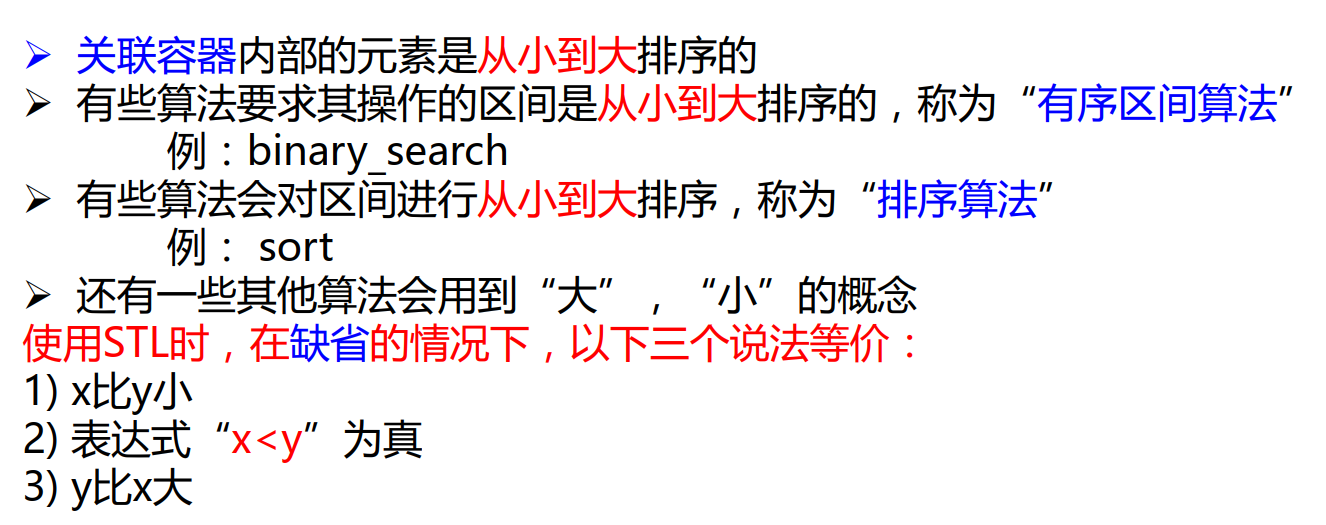

STL中“相等”概念演示
#include <iostream>#include <algorithm>using namespace std;class A { int v;public: A(int n):v(n){} bool operator < (const A & a) { cout << v << "<" << a.v << "?" << endl; return false; } bool operator == (const A & a) { cout << v << "==" << a.v << "?" << endl; return v == a.v; }};void main() { A a[] = {A(1), A(2), A(3), A(4), A(5)}; cout << binary_search(a, a+4, A(9));}/* 输出: 3<9? 2<9? 1<9? 9<1? */












